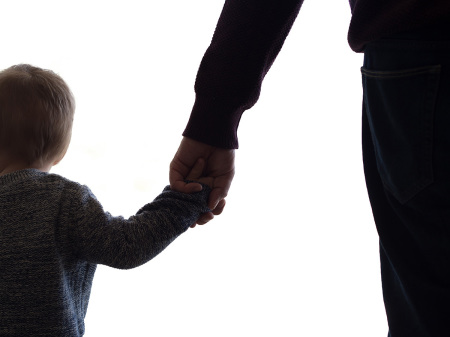Youth For Christ ministry points incarcerated youth, young dads to God as the ultimate 'good father'

While dads across the country are set to celebrate Father’s Day with their families, many of them will mark the holiday in a detention facility.
An estimated 684,500 state and federal prisoners were parents of at least one minor child in 2016, totaling nearly half of state prisoners (47%) and more than half of federal prisoners (58%), according to government data.
The vast majority of parents incarcerated in a U.S. prison or detention facility — 92% — are fathers.
So this Father’s Day, Youth For Christ, a ministry focused on fostering Christ-sharing relationships with high-risk youth from juvenile offenders to teen parents, is looking to bring hope to those within prison walls.
The group's Juvenile Justice Ministry is geared toward young people in the United States justice system, meeting them in a variety of juvenile justice settings, including detention centers, probation, correctional facilities, group homes, residential treatment centers, and emergency shelters.
Alex Mathew, executive director of Youth For Christ, told The Christian Post that the ministry’s focus for Father’s Day is to be a steady voice and presence in the lives of those they serve.
“We’re going to focus on Jesus, but we’re not going to focus and reflect on their earthly fathers, because so many of them have been disappointed or they’re even modeling the negative choices their fathers are making,“ Mathew said.
For many in the cycle of fatherlessness, Mathew says incarceration has become a rite of passage, almost like “graduation” for some.
“We want to break that cycle,” he added.
The ministry came about when Youth For Christ was holding an outreach in a detention center and someone asked the question, “Who is Jesus to you?”
One young man replied, “A father figure,” Matthew said.
“We realized, ‘Let’s start reconstructing what a good father looks like, even though you might not have it in your life,’” he added.
The program seeks to put “father in Christ” figures around young people dealing with relational trauma, racial trauma, community violence, and lack of access to basic needs to show them what fathering looks like, said Mathew.
He said in Scripture we find all sorts of models of “good” and “bad” fathers, even good fathers-in-law such as with Moses and Jethro.
For Mathew, though, the real question is helping to define biblical fatherhood for those who never had an example of their own.
“What if the purpose of us as men from God is not necessarily to be this billionaire or millionaire, but maybe it’s to be a good father, and all of these things will fall into place according to His will?” he said.
And while building up young men and pointing them to the One who can transform them into good dads is never easy, Mathew said it’s not uncommon for those who go through the program to struggle once they’ve moved on.
“I always tell young people, ‘You can’t control your genetics, you can’t control your environment, but you can control your choices,’” he said.
With young people who have been institutionalized, Mathew said there’s often a lack of community to “receive them and build them back up” once they’re released: there’s usually a honeymoon period when they want to go ‘all in” and then a couple of weeks later, they tend to go back to their old ways because their environment “really sabotages them.”
“Our desire is to have a safe place where they can come, even if they slide backward, to encounter God, just by baby steps maybe.”
Researchers have found children who grow up with an engaged dad are less likely to drop out of school or end up in jail compared to children with absent fathers or no other male role model in their lives.
Children who have close relationships with their fathers also tend to avoid high-risk behaviors, are less likely to have sex at a young age and are more likely to have high-paying jobs and healthy, stable relationships as adults.
And it’s not just behavioral: researchers in 2017 said they discovered a biological link that shows how the loss of a father significantly affects children at the level of their DNA.
Children raised without a dad have much shorter ends of their chromosomes, known as telomeres. These chromosomal protective caps are believed to affect health and longevity more positively for those with fathers in the home, according to studies.





















